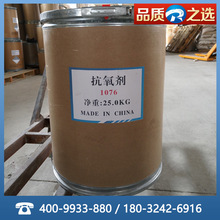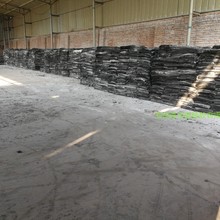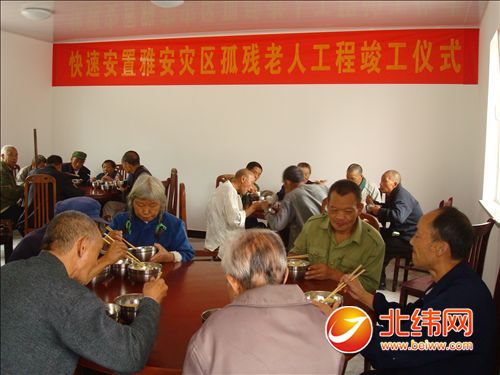In a parting shot at Beijing, Secretary of State Mike Pompeo today issued a statement describing Chinese government policies in the Xinjiang autonomous region as “genocide,” making the U.S. the first country to accuse China of what is generally considered the most serious crime under international law. The statement read:
After careful examination of the available facts, I have determined that the [People’s Republic of China], under the direction and control of the [Chinese Communist Party], has committed genocide against the predominantly Muslim Uyghurs and other ethnic and religious minority groups in Xinjiang. … I believe this genocide is ongoing, and that we are witnessing the systematic attempt to destroy Uyghurs by the Chinese party-state.
There are no automatic penalties to go along with this determination, but politically it’s a bombshell likely to provoke a backlash from Beijing, which strongly denies that atrocities are taking place in Xinjiang. The Chinese government has detained hundreds of thousands of Uighurs and other Muslim minorities—more than a million, according to some estimates—in work and reeducation camps, while taking draconian measures throughout the region to stamp out Uighur culture. (The government justifies these measures as a counterterrorism campaign.) These measures alone have been described as a “cultural genocide.” But the anti-Uighur campaign has arguably risen to the level of physical genocide with reports of the widespread use of forced birth control and sterilization to lower Uighur birth rates.
The charge of genocide seems pretty fair: The practice of “imposing measures intended to prevent births within the group” is specifically prohibited by the 1948 U.N. Genocide Convention.
Human rights activists and media outlets have been urging the international community to describe what’s happening in Xinjiang as “genocide” for some time now, and the statement came after Congress passed legislation on Dec. 27 requiring the administration to determine within 90 days whether genocide or crimes against humanity are taking place.
AdvertisementStill—it’s hard not to view Pompeo’s declaration with some cynicism. It’s true that the Trump administration has slapped harsh sanctions on Chinese officials and government entities for their involvement in abuses in Xinjiang in recent months and just last week banned imports of tomatoes and cotton from the region. But Trump has also been very open about the fact that he held off on such sanctions while he was negotiating a trade deal with China. According to former national security adviser John Bolton’s memoir, Trump even told Chinese leader Xi Jinping in 2019 that building concentration camps for the Uighurs was “exactly the right thing to do.” It seems very clear that Trump finally decided to care about human rights in China after the emergence of the coronavirus, when sucking up to Xi was no longer politically expedient. And it’s not exactly a profile in courage for Pompeo to level this inflammatory charge at Beijing when he won’t have to deal with the fallout. This feels less like a principled stand than yet another last-minute effort to box Biden in.
Advertisement Advertisement Advertisement AdvertisementThe Biden campaign described China’s actions as “genocide” last year and urged Trump to “call this out for what it is.” But campaign rhetoric and administration policy are very different. Amid sensitive negotiations with Turkey, Barack Obama infamously declined to refer to the 1916 massacre of the Armenians as a “genocide” despite a campaign pledge to do so. But it will be much harder for Biden’s team to undoPompeo’s declaration, particularly when it concerns an ongoing crime against humanity rather than a historical event. At the very least, given that the Trump administration could easily have left this determination for the next administration to make, the Biden team would surely have preferred a little more room to maneuver without furious backlash from Beijing on its very first day. [Update, Jan. 19, 4:25 p.m.: During his Senate confirmation hearing, on Tuesday afternoon, Biden’s nominee for secretary of state, Antony Blinken, made clear that he agrees with the determination of genocide.]
AdvertisementWhat the designation will mean in practice, assuming Biden sticks with it, is less clear. As a signatory to the genocide convention, the U.S. is obligated to take action to prevent genocide and punish its perpetrators, wherever it takes place, but the convention is not very specific about what that action should involve. Adopted in the aftermath of the Holocaust, the genocide convention is one of the bedrock agreements of international humanitarian law and carries significant moral weight, if not legally binding obligations, and administrations have often been reluctant to use it to describe atrocities in the past.
Popular in News & Politics
- The Meltdown in Michigan Says It All About Where MAGA Is Headed
- When Stormy Daniels Told Her Story in Court, the Absurd Horror of This Trial Finally Hit Home
- Donald Trump Really Did This to Himself
- Kristi Noem’s Book Has a New, Non-Dog-Killing Scandal
China being China makes it even more complicated. Previous debates over whether to use the term genocide—in Cambodia, Rwanda, Yugoslavia, Syria, Myanmar—did not involve a global superpower that has nuclear weapons and a veto on the U.N. Security Council and is the largest U.S. trading partner. There are a number of measures the Biden administration could take to give the designation more teeth. It could impose more sanctions and encourage allies like Canada, the U.K., and major powers in the Muslim world to follow suit. It could back up congressional initiatives to pressure U.S. firms to remove forced labor in Xinjiang from their supply chains. And if it reverses the Trump administration’s shortsighted decision to withdraw from the U.N. Human Rights Council, it could push for a resolution establishing a fact-finding mission to Xinjiang.
Advertisement AdvertisementBut the charge of genocide raises expectations for a response that goes beyond measures like these. While the incoming administration has vowed to push back on Chinese human rights abuses, it also wants to seek common ground on issues from climate change to counterterrorism to trade. It’s a little hard to countenance discussing such matters with people you’ve accused of crimes that are at least in the same category as those of the Nazis.
One would hope that calling this crime what it is will help usher in a new era of accountability. But it’s just as likely that a crime that was codified to prevent the horrors of the Holocaust from ever being repeated will become, to an even greater extent, just another inflammatory political label.
Tweet Share Share Comment









